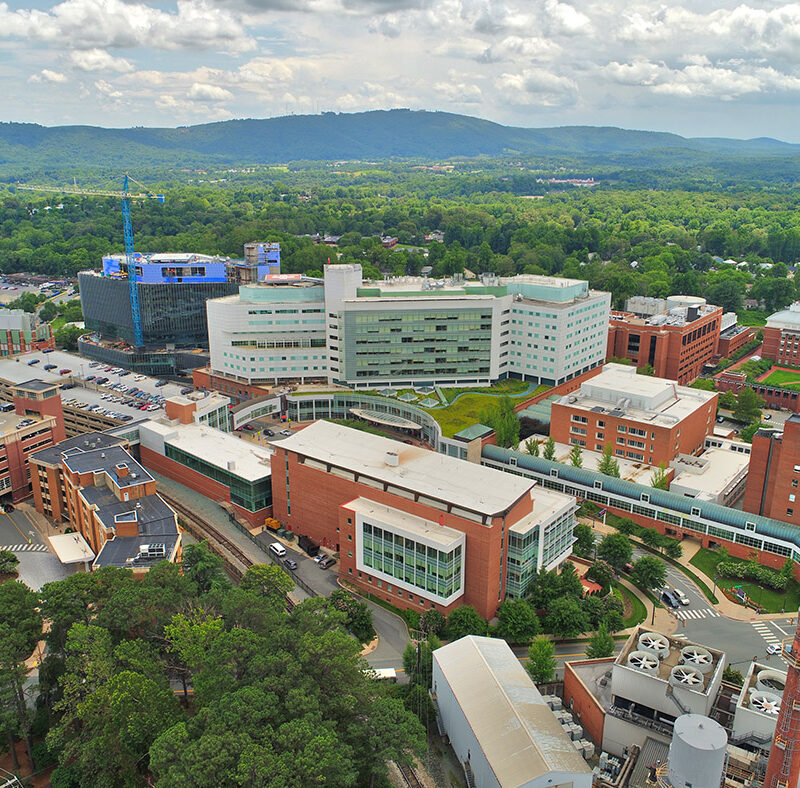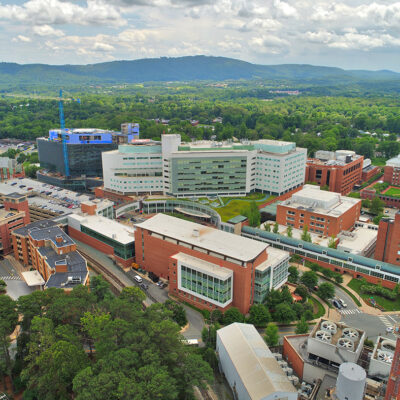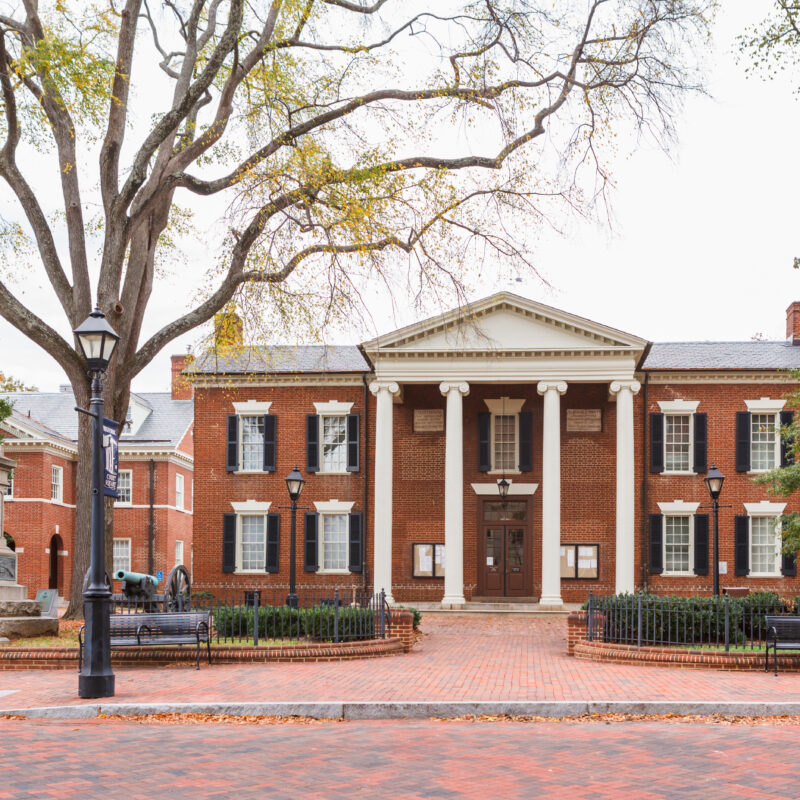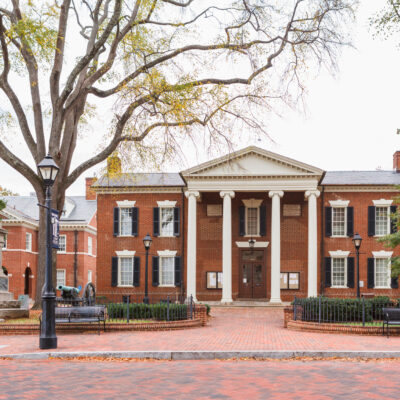“By failing to fund affordable housing in your city, you are quite literally causing and creating homelessness,” said Alliance for Interfaith Ministries director Kimberly Fontaine at the Planning Commission’s public hearing for the city’s Capital Improvement Plan last week.
The Capital Improvement Plan covers non-recurring projects that last for five or more years and cost upwards of $50,000 each. Every year, the city manager’s office drafts a five-year plan, and the planning commission then puts forward non-binding recommendations. This year’s plan includes almost $5 million for a new parking lot on Market Street and another $5 million for the Belmont Bridge, along with smaller projects like replacement traffic lights, new police radios, and air quality adjustments at the Smith Aquatic Center.
What’s absent from the budget, however, drew the most comments at the hearing. As testimony after testimony piled up, the meeting became an emotional referendum on Charlottesville’s housing emergency. The proposed CIP spreads out appropriations for the Charlottesville Regional Housing Authority over a longer period of time than initially proposed, effectively resulting in a 50 percent cut to the CRHA budget for the next two fiscal years.
Council chambers were standing-room only, even though the CIP won’t go into effect until April. Many people in the audience held printed signs reading “Fully Fund Affordable Housing.”
“It takes at least two and a half full-time minimum wage jobs to afford a market rate two-bedroom rental home here in Charlottesville,” said Sunshine Mathon, CEO of the Piedmont Housing Alliance. “We have an opportunity to realign our priorities, redressing the historical outcomes our systems were designed to—and did—produce.”
Elena Cleveland owns a house built by Habitat for Humanity. She said her mortgage is half of what she used to pay in rent. “With the rent being so high, we didn’t have money for anything else,” Cleveland said.
“We’ve been talking about this for a long, long time,” said public housing resident and activist Joy Johnson. “We live in the city, we’re taxpayers. You have a responsibility to make sure that folks who are not homeowners still have affordable housing to live in.”
Former mayor Dave Norris reminded the commission that city investment in housing earns generous matches from philanthropic groups and state programs. “That $3 million that was allocated this year leveraged in turn about eight dollars for every one dollar put in by the city,” Norris said.
Housing wasn’t the only point of contention—other residents voiced their concerns about the potential environmental impacts of the new plan. The proposed CIP includes funding for an $8.5 million parking garage on Market Street, but does not include any new money for sidewalks or bicycle infrastructure.
“If you keep burning more and more fossil fuels, you will accelerate the destruction of this planet, said resident Josh Clark. “Which is a different kind of housing crisis, if you think about it.”
“As we turn our sights to hitting our city’s emissions targets, the city has few levers to pull,” said resident Andrew Jones. “Encouraging zero-carbon, low-cost transportation through cycling and pedestrian infrastructure is one of the few obvious paths forward to hitting these targets.”
For some, those concerns were secondary to housing. “If people can’t afford to live here, it doesn’t matter how many bike lanes we put in,” said resident Don Gathers.
After more than 90 minutes of public comment, Commissioner Lyle Solla-Yates put forward a motion: “I’d like to move that the CIP needs additional work.”
The planning commission addressed housing first. “Why are we making this so much harder than it needs to be? We’re fully funding it,” said Commissioner Taneia Dowell.
The commission passed an amendment recommending that the city front-load their six-year, $15 million commitment to the Charlottesville Regional Housing Authority, increasing the budget from $1.5 million to $3 million for fiscal years 2021 and 2022 and effectively reversing this CIP’s proposed cut. The commission also asked the city to increase funding for the Charlottesville Affordable Housing Fund over the next five years.
Freeing up funds for housing meant cutting other projects. The commission identified the Market Street parking garage construction as fat that could be trimmed. Building a new parking garage is “morally wrong, at any dollar amount,” said Commissioner Rory Stolzenberg.
“I do think there’s something that can be done there, other than just an ugly old parking garage,” said Commissioner Lisa Green. “There’s so many options out there.”
The commission recommended that the project remain unfunded until the city has had an opportunity to produce alternate options.
From there, finding projects to defund became more difficult. At one point, Solla-Yates suggested postponing a request for a new ambulance. “It wasn’t in the projection, it’s not an emergency,” he said. His motion died without being seconded.
“A friendly reminder to my fellow planning commissioners,” Solla-Yates said. “If we don’t decrease anything, we don’t get to increase anything.”
Towards the end of the discussion, Mayor Nikuyah Walker said that simply setting aside more funding for public housing wouldn’t solve the problem. The city wouldn’t know how to spend the money even if it became available.
“Where’s all this affordable housing we’ve been funding for years?” Walker said. “We are talking about meeting the needs of thousands of families. We haven’t been able to produce a quality program that can do that.”
Walker said she doesn’t want to “keep tossing money into a lot of different things without measuring the effectiveness.”
The Planning Commission eventually passed a motion with nine amendments, each suggesting revisions to the CIP. Its resolutions are not binding. City Council will vote on a finalized plan in April.
Updated 12/18 to clarify the location of the garage.





